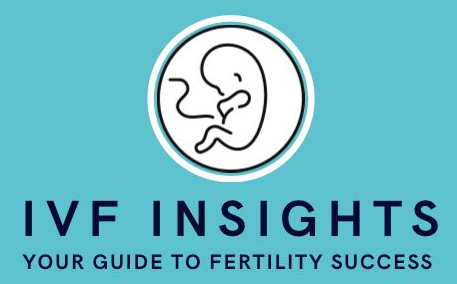
How to Boost Egg Quality and Increase Fertility
Bringing new life into the world is a dream for many, but for some individuals and couples, the journey to parenthood can be more complex. The quality of a woman's eggs is a crucial factor in achieving a healthy pregnancy. Fortunately, there are steps you can take to boost egg quality and enhance your fertility. In this article, we'll explore the science behind egg quality, lifestyle factors that influence it, and practical tips to increase fertility and ultimately your chances of conceiving.
Understanding Egg Quality and Fertility
Egg quality refers to the health and developmental potential of a woman's eggs. High-quality eggs are more likely to result in a successful pregnancy, while poor egg quality can lead to fertility issues and miscarriages. Several factors influence egg quality, including
age, genetics, and lifestyle choices.

You Might Also Like: What's the Best Fertility Diet When Trying to Get Pregnant
Age and Egg Quality
Age is one of the most significant factors affecting egg quality. A woman's peak reproductive years are typically in her 20s and early 30s when egg quality is at its best. As a woman ages, the quantity and quality of her eggs
naturally decline. By the age of 35 and beyond, egg quality significantly decreases, making it more challenging to conceive and increasing the risk of chromosomal abnormalities.
Genetics and Egg Quality
Genetic factors also play a role in egg quality. Each woman is born with a specific number of eggs, and the genetic makeup of these eggs can influence their quality. While you can't change your genetics, you can focus on factors you can control to increase fertility.

Lifestyle Factors That Influence Egg Quality And Increase Fertility
There are several lifestyle factors that can positively impact egg quality and increase fertility. Here are practical steps you can take to improve your chances of conceiving:
How to Boost Egg Quality 1: Maintain a Healthy Diet
A balanced diet rich in essential nutrients, including folate, vitamin D, and antioxidants, can positively influence egg quality. Include plenty of fruits, vegetables, lean proteins, whole grains, and healthy fats in your diet.
How to Boost Egg Quality 2: Stay Hydrated
Proper hydration supports overall health, including reproductive health. Drinking an adequate amount of water is crucial for optimizing egg quality.
How to Boost Egg Quality 3: Manage Stress
High levels of stress can negatively affect egg quality and decrease fertility. Engage in stress-reduction techniques like meditation, yoga, deep breathing exercises, and mindfulness to help manage stress.
How to Boost Egg Quality 4: Regular Exercise
Incorporating moderate, regular physical activity into your routine can improve overall health and hormonal balance, which can positively impact egg quality.
How to Boost Egg Quality 5: Limit Alcohol and Caffeine
Excessive alcohol and caffeine consumption can potentially affect egg quality. It's advisable to limit or avoid these substances when trying to conceive.
How to Boost Egg Quality 6: Quit Smoking
Smoking is associated with reduced fertility and poor egg quality. If you smoke, quitting is a significant step toward improving reproductive health.
How to Boost Egg Quality 7: Maintain a Healthy Body Weight
Being either underweight or overweight can affect egg quality and fertility. Achieving a healthy body weight through a balanced diet and regular exercise is important.
How to Boost Egg Quality 8: Supplements
Some supplements have shown potential in improving egg quality. Coenzyme Q10 (CoQ10) and myo-inositol are examples of supplements that may be beneficial. Consult your healthcare provider before adding supplements to your routine.
How to Boost Egg Quality 9: Limit Environmental Toxins
Minimize exposure to environmental toxins, such as BPA, pesticides, and heavy metals, which can negatively impact reproductive health.
How to Boost Egg Quality 10: Fertility Preservation Techniques
If you're not ready for immediate fertility treatments, consider fertility preservation options like egg freezing. This allows you to freeze your eggs at a younger age, potentially preserving higher egg quality for future use.
How to Boost Egg Quality 11: Age Considerations
Understand that egg quality declines with age, particularly after the age of 35. If possible, consider fertility treatments at a younger age for better outcomes.
How to Boost Egg Quality 12: Consult a Specialist
If you're struggling with infertility or have concerns about egg quality, consult a reproductive specialist. They can provide personalized advice and treatments, including medications or assisted reproductive technologies like IVF.

While you may not be able to change certain factors like your genetics or the natural aging process, there are positive steps you can take to improve your egg quality and increase fertility. Remember that each individual's fertility journey is unique, and what works best for one person may differ from another. Consulting with a reproductive specialist can help you assess your individual situation and determine the most appropriate course of action.



